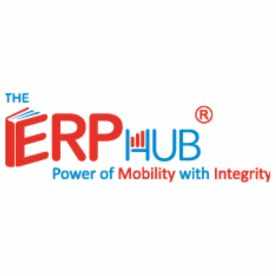
The pharmaceutical industry operates in one of the most highly regulated environments globally. As international regulatory bodies continuously update compliance standards, pharmaceutical manufacturers must adapt quickly to avoid penalties, ensure product quality, and maintain operational efficiency. This is where pharmaceutical manufacturing ERP software plays a crucial role. By integrating compliance, quality control, and supply chain management, ERP solutions help pharmaceutical companies stay ahead of regulatory changes while enhancing productivity.
Ensuring Compliance with Evolving Global Standards
Regulatory agencies like the FDA, EMA, and WHO frequently update their compliance requirements to ensure pharmaceutical products meet safety and quality standards. Keeping up with these regulations manually is time-consuming and prone to errors. Pharma manufacturing software automates compliance management by providing real-time tracking, document control, and audit trails, ensuring that companies meet regulatory requirements seamlessly.
An ERP system for pharmaceutical manufacturing allows businesses to standardize processes according to international guidelines. This includes Good Manufacturing Practices (GMP), Good Distribution Practices (GDP), and other industry-specific regulations. By automating compliance documentation and process validation, companies can minimize risks associated with non-compliance.

Moreover, modern pharmaceutical manufacturing ERP software offers built-in features such as electronic signatures, role-based access, and batch tracking, all of which contribute to regulatory compliance. These features ensure data integrity, which is critical for audits and regulatory inspections.
Streamlining Quality Control and Assurance
Quality control is a top priority in pharmaceutical manufacturing, and non-compliance can result in product recalls, legal consequences, and financial losses. Pharmaceutical manufacturing software helps streamline quality management by integrating real-time monitoring, automated testing, and corrective action workflows.
With an ERP system, manufacturers can track raw material quality, in-process checks, and finished product testing, ensuring that only compliant products reach the market. Automated alerts notify quality managers of deviations, enabling immediate corrective action to maintain compliance.
Additionally, ERP solutions allow pharmaceutical companies to generate comprehensive quality reports for regulatory submissions. This reduces the burden on compliance teams, allowing them to focus on strategic improvements rather than manual data entry and documentation.
Enhancing Supply Chain Visibility and Traceability
Global pharmaceutical supply chains are complex, involving multiple suppliers, manufacturers, and distributors across different countries. Regulatory agencies demand full traceability of raw materials and finished products to ensure safety and efficacy. Pharma manufacturing software provides complete supply chain visibility, ensuring that every component is sourced, processed, and distributed in compliance with regulatory standards.
An advanced pharmaceutical manufacturing ERP software enables end-to-end traceability through batch tracking, serialization, and real-time inventory management. By integrating barcode scanning and RFID technology, companies can monitor product movement from production to end-user distribution, reducing the risk of counterfeit drugs and regulatory violations.

Furthermore, ERP systems support automated supplier qualification and compliance checks, ensuring that raw material vendors meet necessary regulatory criteria. This prevents disruptions in the supply chain and enhances product safety.
Managing Documentation and Electronic Records Efficiently
Documentation is a crucial aspect of pharmaceutical regulations. Maintaining accurate and up-to-date records for production, testing, and distribution is essential for audits and regulatory inspections. Traditional paper-based documentation is inefficient and increases the risk of data loss and errors. Pharmaceutical manufacturing software addresses this challenge by offering digital documentation management.
With an ERP system, companies can store, retrieve, and manage electronic records effortlessly. Features such as version control, automated approvals, and document security enhance data integrity and compliance. Digital document management also reduces administrative workload, allowing employees to focus on core operational activities.
Additionally, ERP solutions provide audit trails that track all document changes, ensuring transparency and accountability. This is particularly beneficial for regulatory audits, where timely access to accurate documentation is critical.
Improving Production Planning and Process Validation
Pharmaceutical manufacturing involves strict process validation to ensure consistency and product quality. Any changes in formulations, equipment, or processes must be documented and approved per regulatory guidelines. Pharma manufacturing software simplifies this by offering automated validation workflows, ensuring that all changes are tracked and reviewed before implementation.
ERP systems also optimize production planning by aligning manufacturing schedules with regulatory requirements. By integrating demand forecasting and real-time inventory monitoring, pharmaceutical manufacturers can reduce waste, improve efficiency, and prevent compliance-related disruptions.

Furthermore, ERP solutions support automated batch record generation, which is essential for tracking production activities and maintaining compliance with GMP regulations. This ensures that all production steps are documented accurately, reducing the risk of deviations and compliance issues.
Enhancing Data Security and Cyber Compliance
As pharmaceutical companies transition to digital operations, data security becomes a critical concern. Regulatory bodies enforce strict cybersecurity guidelines to protect sensitive patient data, intellectual property, and compliance records. Pharmaceutical manufacturing ERP software offers robust security features, including encryption, multi-factor authentication, and access controls.
Modern ERP systems also support cloud-based data storage, ensuring that critical regulatory documents are backed up and protected against cyber threats. Compliance with standards such as FDA 21 CFR Part 11 ensures that electronic records and signatures are secure and legally valid.
Additionally, ERP solutions provide real-time security monitoring and threat detection, minimizing the risk of data breaches. By investing in a secure ERP system, pharmaceutical companies can enhance regulatory compliance while protecting their valuable business data.
Future-Proofing Compliance with TheERPHub
As pharmaceutical regulations continue to evolve, companies must adopt innovative solutions to stay compliant and competitive. The ERPHub provides advanced pharmaceutical manufacturing ERP software tailored to meet the industry's stringent regulatory demands. From compliance management and quality control to supply chain transparency and data security, TheERPHub empowers pharmaceutical manufacturers to navigate complex regulations with ease.

With TheERPHub’s pharma manufacturing software, businesses can streamline operations, reduce compliance risks, and ensure product quality without compromising efficiency. Don't let regulatory changes slow down your business—invest in a future-proof ERP solution today. Contact us now to discover how our ERP solutions can transform your pharmaceutical manufacturing operations.












Write a comment ...